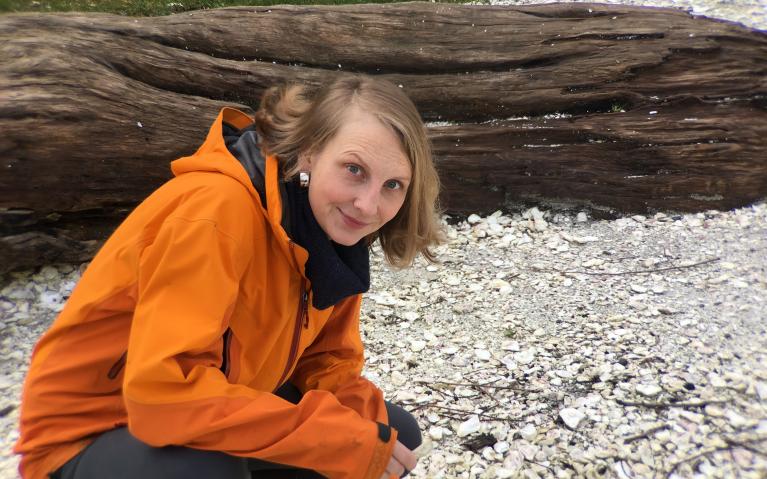
Jennifer Sunday has long had an affinity with the natural world and a lifelong interest in solving problems. “I have always been interested in nature, and – thinking back – in logic and puzzles,” says Sunday, who has combined those passions in her research to better understand the impact of climate change on marine species.
Sunday’s work has been garnering a lot of interest and support. Last year, she earned a Genome Canada Grant, was named an Alfred P. Sloan research Fellow and was named to the list of the world’s most-cited researchers.
Last week, Sunday was named an Early Career Fellow by the Ecological Society of America (ESA). The ESA announced its 2021 class of Fellow and Early Career Fellows on March 25.
Sunday, a William Dawson Scholar and Assistant Professor in the Department of Biology, was honoured “for contributions to understanding the relative roles of climate, physiology, and species’ interactions upon biogeographical ranges and changes in biodiversity; and for advancing understanding of ecological change and climate change responses using analyses of biogeography through time and comparative traits.”
The Ecological Society of America, founded in 1915, is the world’s largest community of professional ecologists.
“It is amazing to be recognized,” says Sunday. “It provides the feedback that one’s chosen path of inquiry, and the toil/sweat/tears that go into it, is resulting in something that is useful to somebody.”
Examining the impact of climate change
Sunday’s research examines how species and ecosystems respond to climate change. Looking at how individual organisms and species vary in their responses, Sunday seeks to understand the mechanics of these responses, in order to build better in order to better understand and predict species’ responses to global change.
“A lot of my work is focused on how species are shifting their ranges in response to climate warming – most species are moving poleward, where their environmental needs are better matched,” says Sunday. “But not all species are keeping up, so I am interested in understanding why that is. It may be that temperature isn’t everything, or that there are lags or thresholds due to indirect effects, species interactions, and adaptive capacities.”
“On this last point, as the ocean becomes warmer it is also becoming more acidic and less oxygenated, and there is lots of variation between months and years, and across space,” she says. “I am interested in predicting how communities of interacting species will respond, how they might adapt, and how management decisions can help.”
Sunday says that while much of her work thus far has been “defining the problem” and summarizing her observations on how global change affects species and communities, she is shifting her focus somewhat. “Defining a problem can only get us so far,” she says. “My work is now turning to collaborating with managers and conservation agencies to use ecological and evolutionary theory to direct action.”
Interest in nature, logic and puzzles
When asked if she was always interested in being a marine biologist, Sunday laughs.
“I wanted to be a marine biologist in Grade 6 when everyone else wanted to be a marine biologist. We were picturing dolphins of course,” says Sunday, who grew up on the West Coast. “But the second wave for me came in university. I spent some time at the Bamfield Marine Sciences Centre; first as a volunteer, scrubbing tanks for ‘real marine scientists;’ and later as a student, taking field-intensive courses and conducting my own research projects under the supervision of mentors.”
“I think that mix of being in the field, getting to know the curious critters of the marine intertidal, and thinking of new research questions while studying work from previous researchers on the very same species, gave me the bug,” says Sunday. “It is the feeling of unveiling mysteries.”
Read the Ecological Society of America’s press release.
